 Last Saturday I listened to a satiric, yet believable rendition of the Tower of Babel story on NPR (National Public Radio) called "Reach for the Top," written and read by Jonathan Goldstein. This aired as part of Goldstein's WireTap series. This tale struck me as not only plausible historically, but also reminiscent of recent events that have befallen the financial sector.
Last Saturday I listened to a satiric, yet believable rendition of the Tower of Babel story on NPR (National Public Radio) called "Reach for the Top," written and read by Jonathan Goldstein. This aired as part of Goldstein's WireTap series. This tale struck me as not only plausible historically, but also reminiscent of recent events that have befallen the financial sector.
The Tower of Mibzer (Later renamed the Tower of Babel) was inspired by a man named Mibzer to lift the human race out of its post-Flood rut.
In the years following the Great Flood, the memory of God's wrath weighed heavy on people's minds. Their hopes for the future were grim in light of God's seemingly capricious wrath. Though He gave people the rainbow as a source of reassurance, it tended to remind them of their not-so-distant, catastrophic past.
There arose an energetic young butcher named Mibzer lived in a small town named Babel. This man was a big thinker, especially for a butcher.
During those times, gossip and convoluted speculation relating to The Flood dominated people's conversations. Thus Mibzer concluded that Noah must have failed to communicate God's mind to the people. Considering the tiny group that made it onto the boat, Noah must not have conveyed the grave implications of this imminent disaster with sufficient color or fanfare. As far as Mibzer was concerned, Noah should have explained what happened to the post-flood survivors so (at least) God wouldn't look so incompetent.
Mibzer eventually came up with the idea of building a Great Tower as a means to redeem mankind. Such a tower would give people purpose right now as well as promise them a well-shaded future. The Tower would reach into heaven so anyone might step into God's throne room in the clouds and approach Him whenever they wanted. Also, in case God sent another flood, the people could run up the tower for safety. The Tower would stand out as a symbol of human ingenuity, as a manifestation of promise to a discouraged race.
Mibzer started off standing on old meat boxes, preaching his glorious vision to busy market goers. Before long he affected a large enough group of people get the project going. Mibzer's role in the Tower's construction was to boost morale and remind people why they were working so hard.
As the Tower grew in stature, so did the number of workers. Before long other towns saw the Tower of Mibzer stretching into the sky; this attracted masses of energetic contributors. Thus progress moved along at an exponential rate, until God threw an unexpected wrench in their plans. Without warning, God rearranged everyone's ability to communicate. Though whatever they said made sense to whoever was speaking, the words came out as gibberish to everyone else. Thus mankind no longer spoke one language, and work on the Tower was postponed indefinitely.
This story demonstrates the general rule that people aren't satisfied with the security God offers them. We prefer to have something measurable, something we can call on whenever we feel the need.
God's rainbow, which mankind could never create or build, represents His unbreakable promise to never destroy the world again. This should have sufficed, but people, in their short-sightedness, decided to invent something more controllable, something that offered them a sense of security. The same thing goes for us these days... the security of simply knowing and depending on God is staring us in the face all the time, but we prefer to depend on more predictable things like wood, stone and metal, or anything that gives us a sense of control.
These days people are similarly desperate for whatever guarantee they can get--especially in regards to finances. The Great $700 Billion Bailout is like an oversized, convoluted tower of money that was thrown together to satisfy people's immediate needs. The Bailout was inspired by fear that our American status quo might be at risk.
***
Until Robert's comment (below) I was unable to verify a few particulars of this broadcast. It turns out there are MP3's for a series of readings at the WireTap blog called Ladies and Gentlemen, The Bible! Judging by the unique insight Goldstein demonstrates in this episode, I'll be checking back.
Related post: Bad Religion -- "Skyscraper"


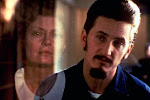





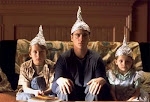

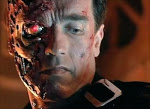
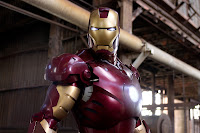






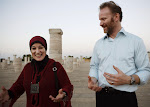



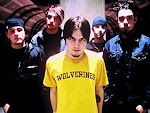

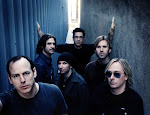
3 comments:
Very interesting.
Having read an article about the still-not-finished Freedom Tower, I also believe it too serves as a modern manifestation of the Tower of Babel.
I'm sure some may find that shocking, and some would argue that I'm insinuating all skyscrapers are also modern Towers of Babel, but that's not the case.
It's what the Freedom Tower is supposed to stand for that, in my opinion, makes it a modern day equivalent.
When we begin to force billions of dollars worth of construction for our own personal agendas mostly independent of practical purposes, there is a serious problem; especially when the final result is supposed to represent anything beyond a good construction crew, a solid architect, and a place where people will live and/or work.
"Such a tower would give people purpose right now as well as promise them a well-shaded future."
Christ is that tower... not the Twin, Freedom, Trump or any other towers that we are able to construct.
The ultimate message to terrorists and others who would like to infringe on our beliefs should be that our true freedom, our wonderful way of life, is not rooted in our tall buildings or our money (including the bailout).
We are doing a wonderful job proving just the contrary.
Hi, I found the mp3 of the episode...It was spoken by Jon Goldstein on the program Wiretap...The episode is called Reach For the Top.
http://wiretap.jantonbusch.com/
thx a ton
Post a Comment